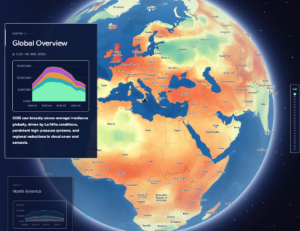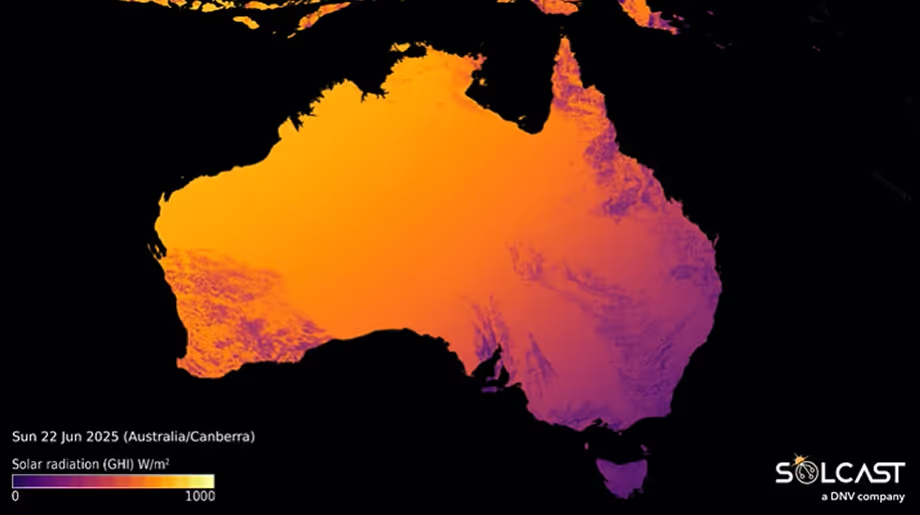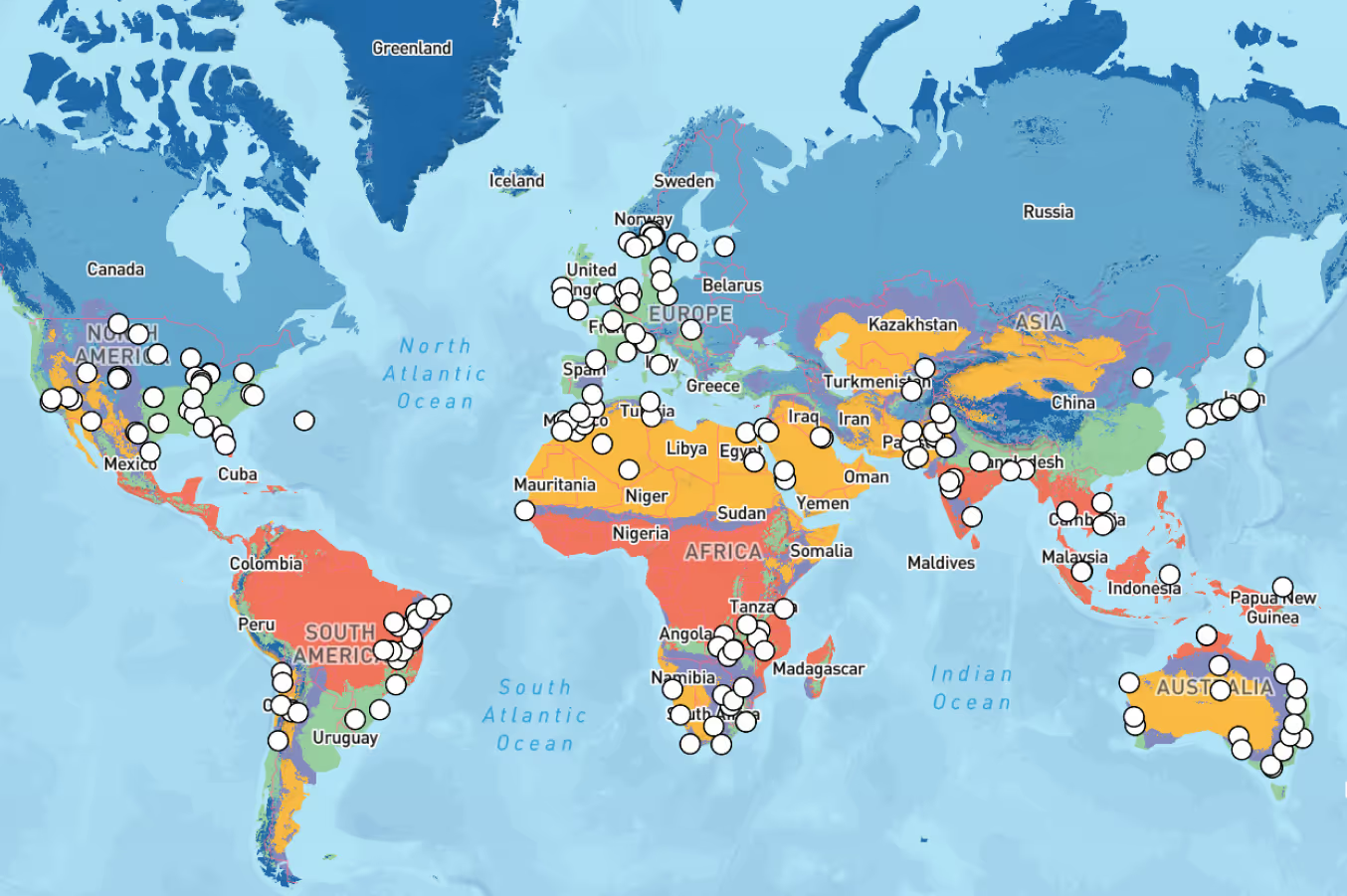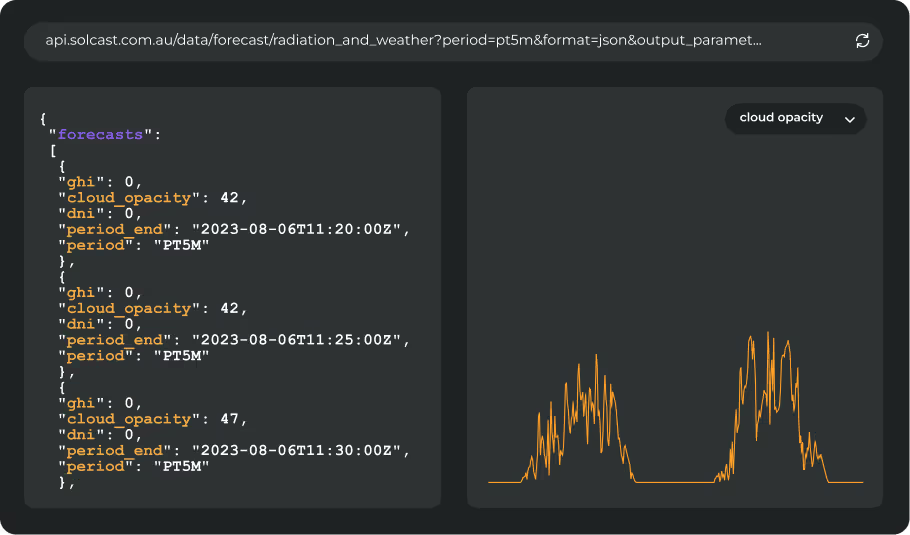Latest
Filters
Latest
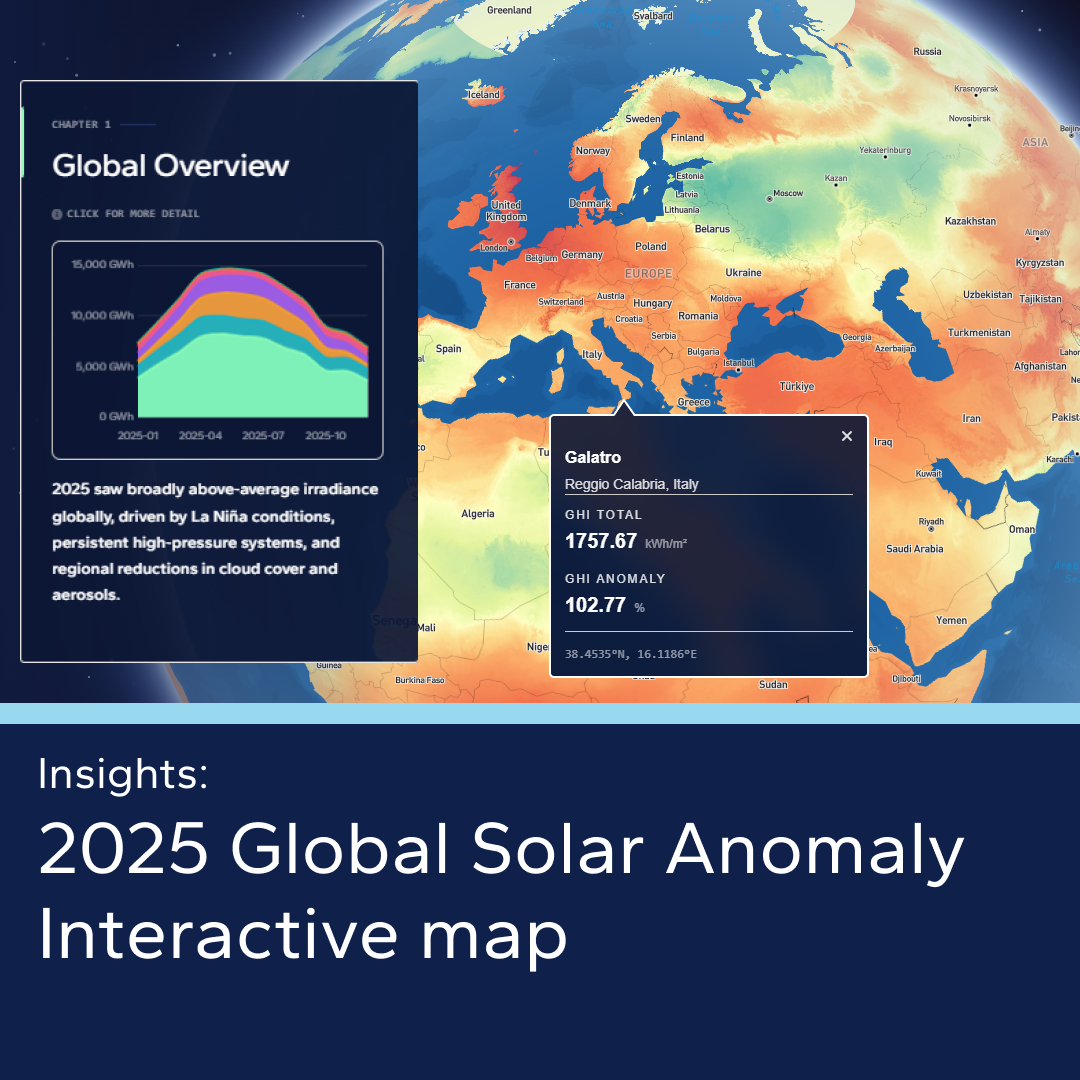
Solar Analysis
2025 Global Solar Irradiance & Production: How Weather Shaped a Record Year
How did weather impact global solar production in 2025? Use our interactive map to explore irradiance anomalies, La Niña effects, and regional solar generation trends worldwide. Explore global solar irradiance trends, anomaly maps, and daily generation variability to see how weather shaped solar production in your region.
Solar Analysis
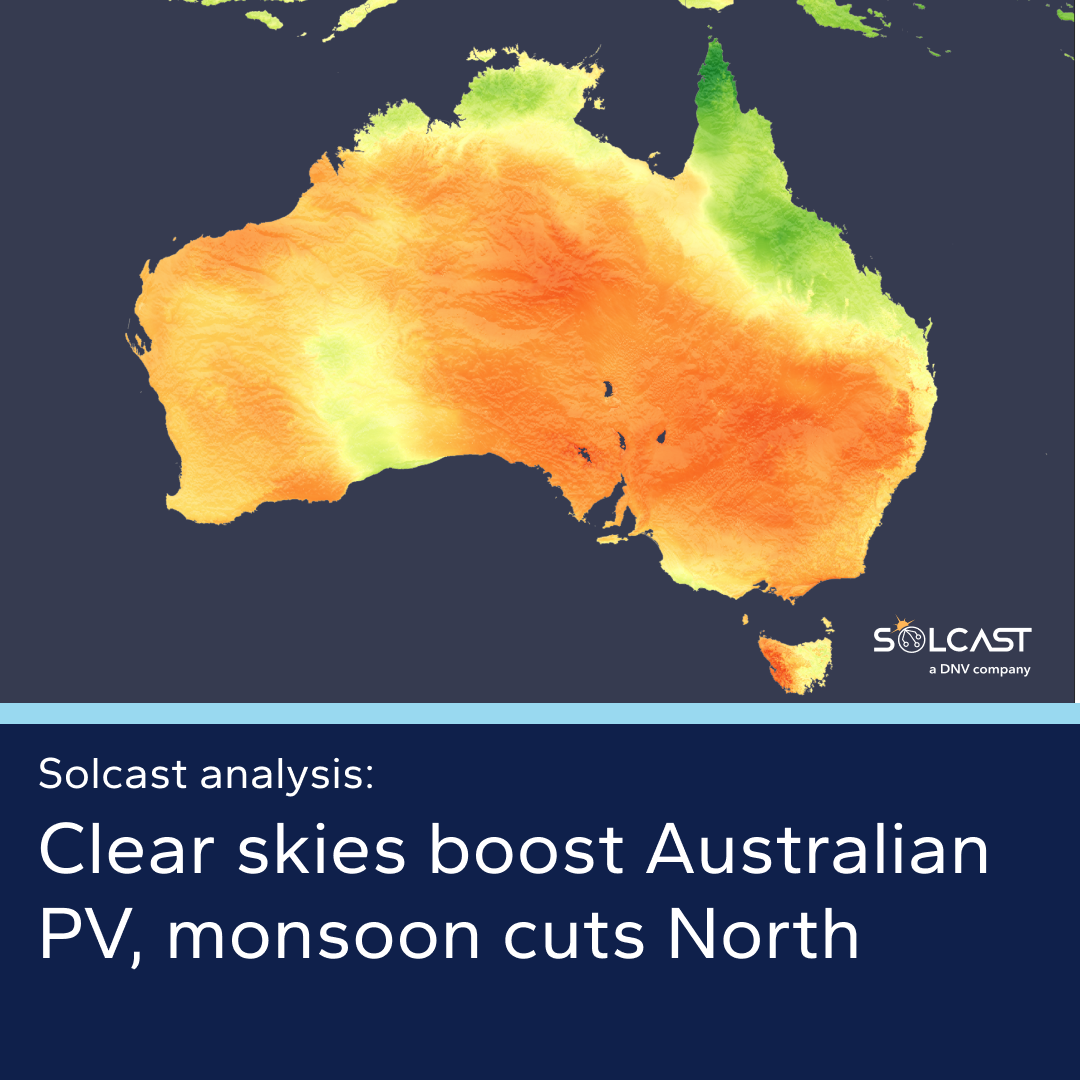
Solar Analysis
Hot, dry start to 2026 lifts Australian PV, despite fires and monsoon losses
Widespread clear skies boosted Australian solar in January, though smoke, dust, and Tropical Cyclone Koji caused localised reductions.
Solar Analysis

Solar Analysis
Winter Storm Fern disrupts North American solar in late January
Winter Storm Fern drove widespread cloud and cold across North America in late January, reducing solar irradiance and PV generation in affected regions.
Solar Analysis
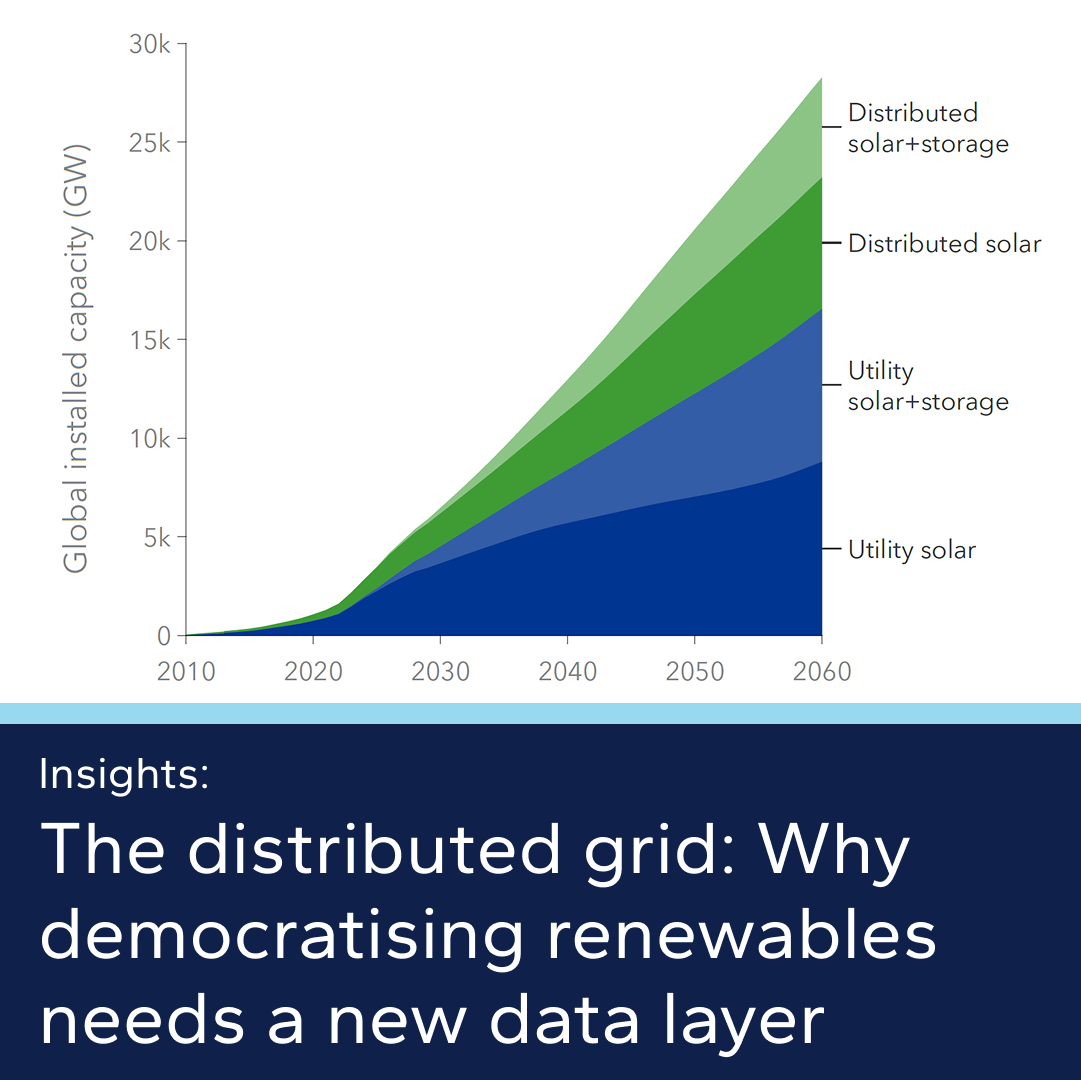
Insights
The distributed grid: Why democratising renewables needs a new data layer
The shift from centralised thermal generation to distributed renewable generation is fundamentally changing grid architecture. Managing this transition isn't just about building capacity - it requires a new data layer: granular, scalable forecasting that provides the observability to operate thousands of independent generators as a coordinated system.
Insights
.png)
Solar Analysis
Early tropical storm cuts solar in Philippines, while East Asia sees La Niña gains
January saw above-normal solar across East Asia under weak La Niña, but storm-driven cloud and rain reduced irradiance in the Philippines.
Solar Analysis
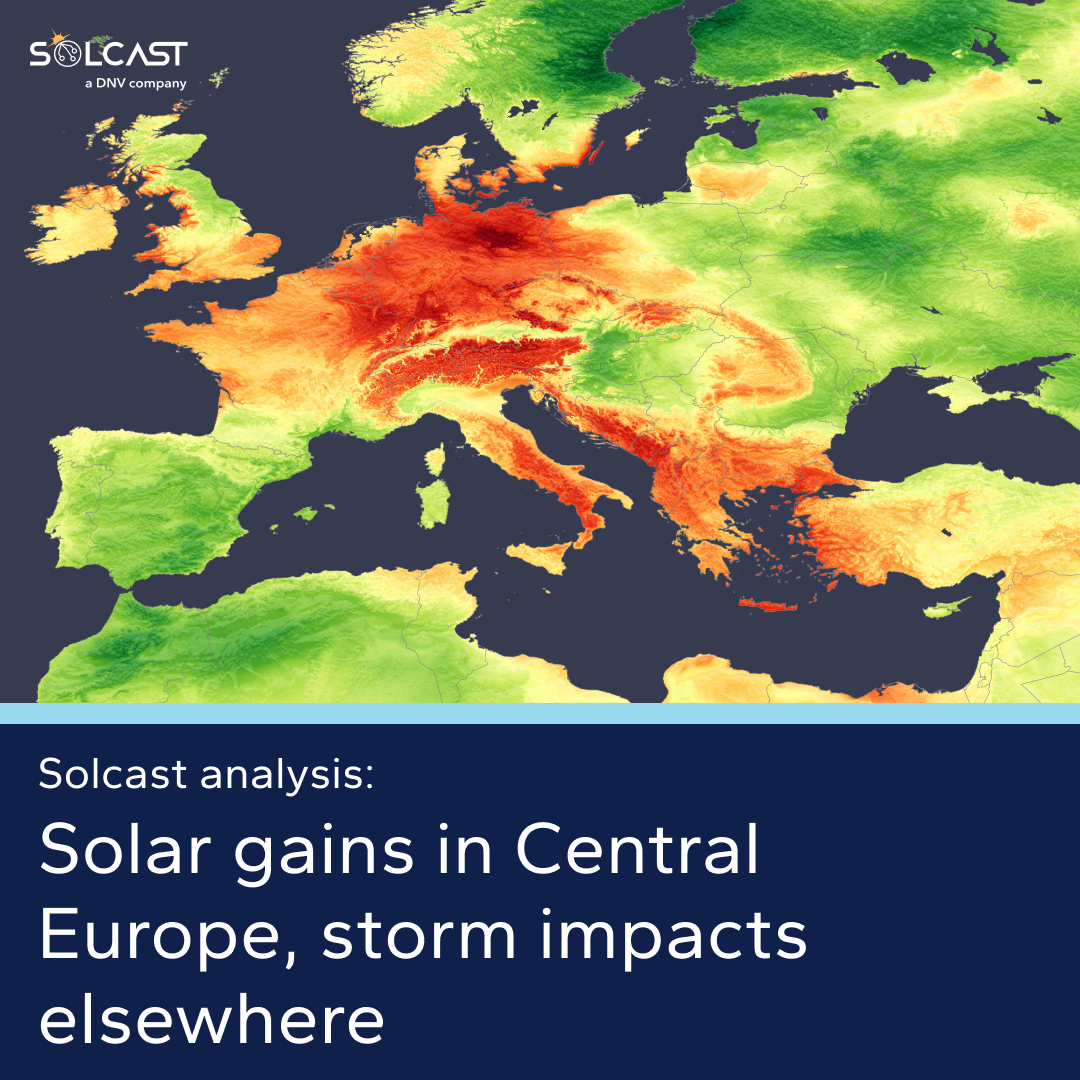
Solar Analysis
Storm systems and late snow event drag down irradiance in eastern and western Europe
Storm systems and late-month snowfall reduced solar irradiance across much of Europe in December 2025, while central regions benefited from clearer conditions
Solar Analysis
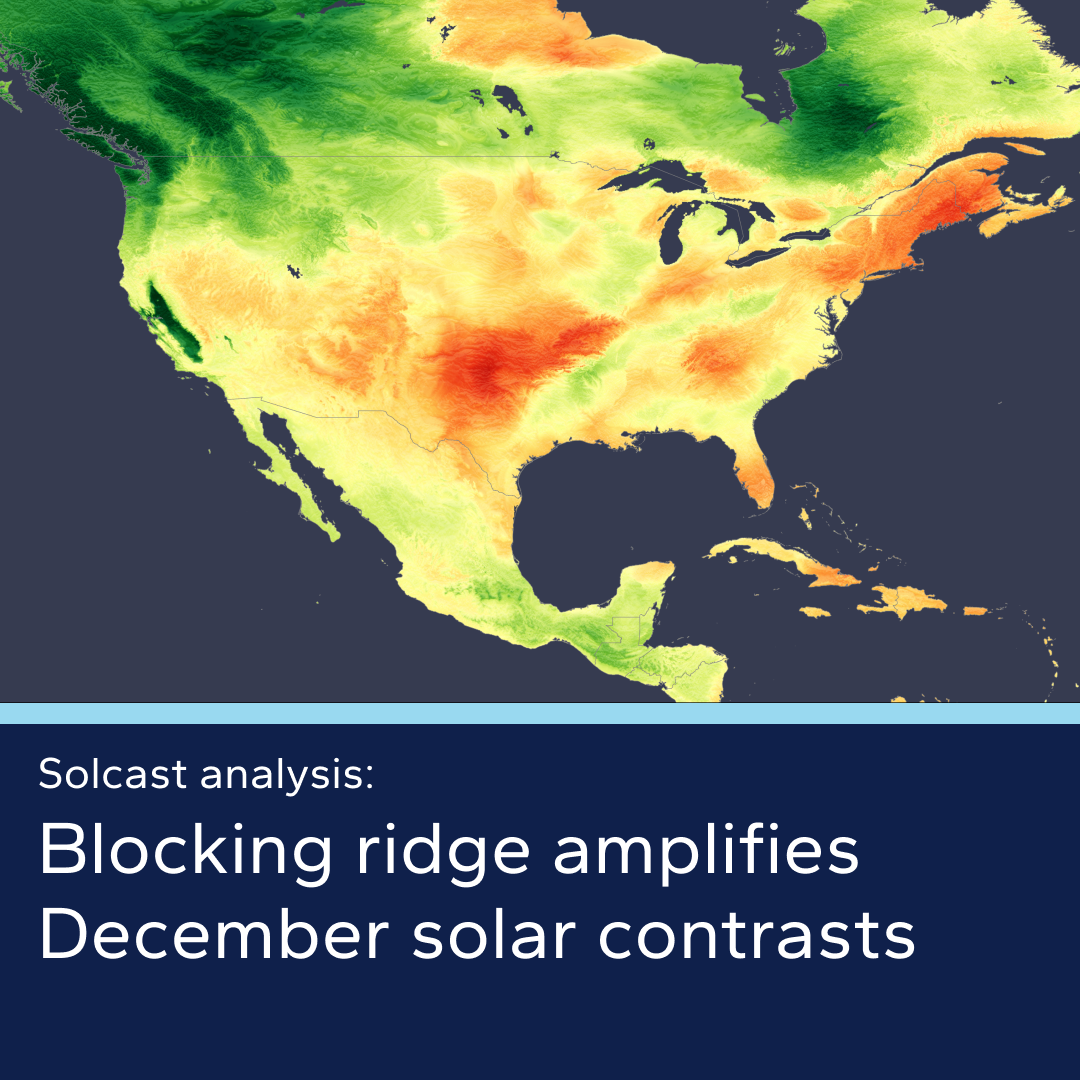
Solar Analysis
La Niña Ridge drives December solar gains across U.S. Southwest
December irradiance anomalies followed a classic La Niña setup, with a ridge over the Southwest driving strong solar gains and deficits across northern regions.
Solar Analysis
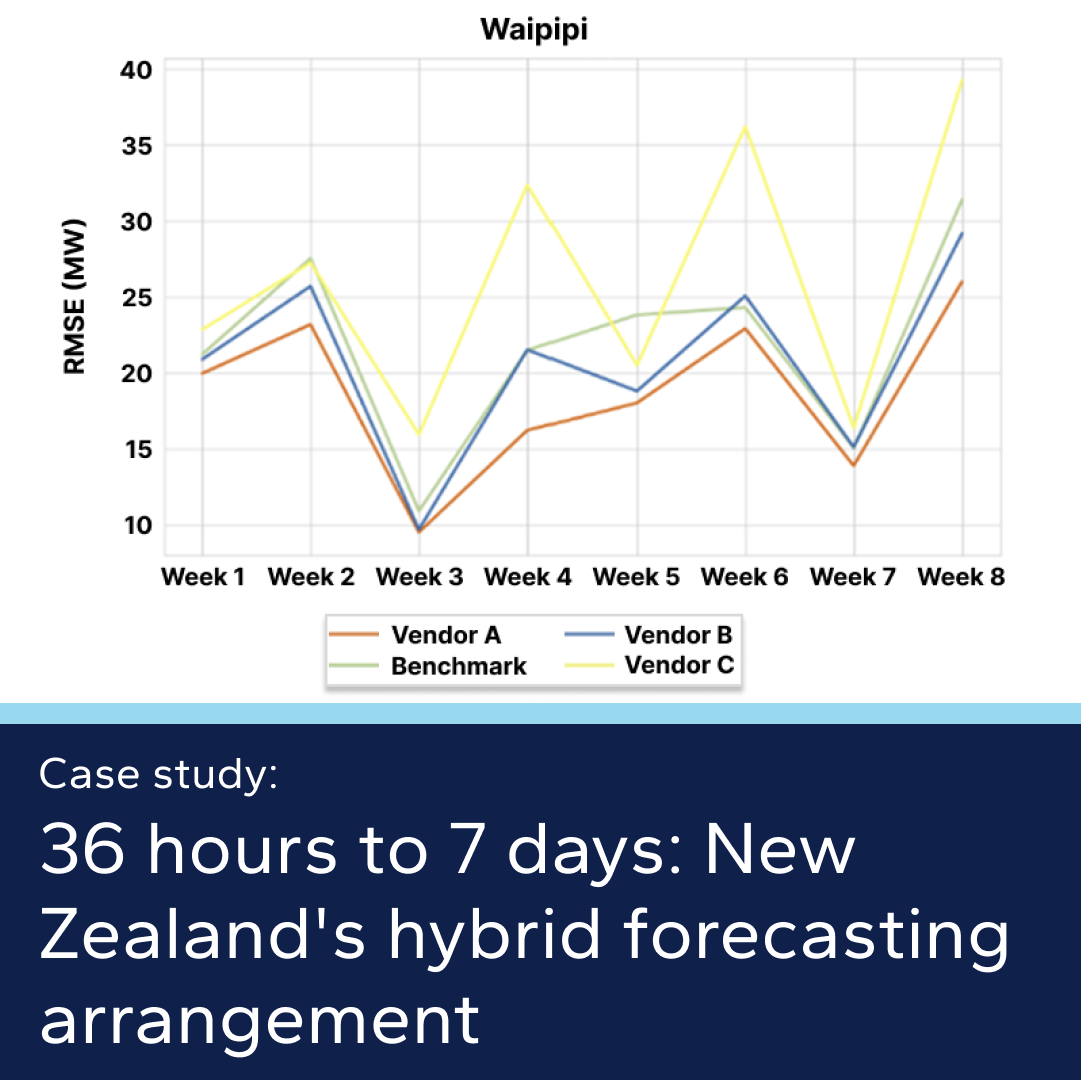
Customer Stories
How a hybrid forecasting arrangement in New Zealand aims to improve the accuracy of variable generation forecasts
Analysis by the Electricity Authority revealed forecast errors were affecting spot prices by up to $273 million annually. After examining global approaches, they implemented a hybrid forecasting arrangement - and selected DNV as the centralised forecast provider following an 8-week competitive trial.
Customer Stories

Solar Analysis
Early solar forecast: First half 2026 solar outlook
Forecasts for early 2026 point to a mixed solar outlook. While Australia and eastern China are likely to experience above-average irradiance, Europe and parts of the Americas may see below-average conditions early in the year.
Solar Analysis
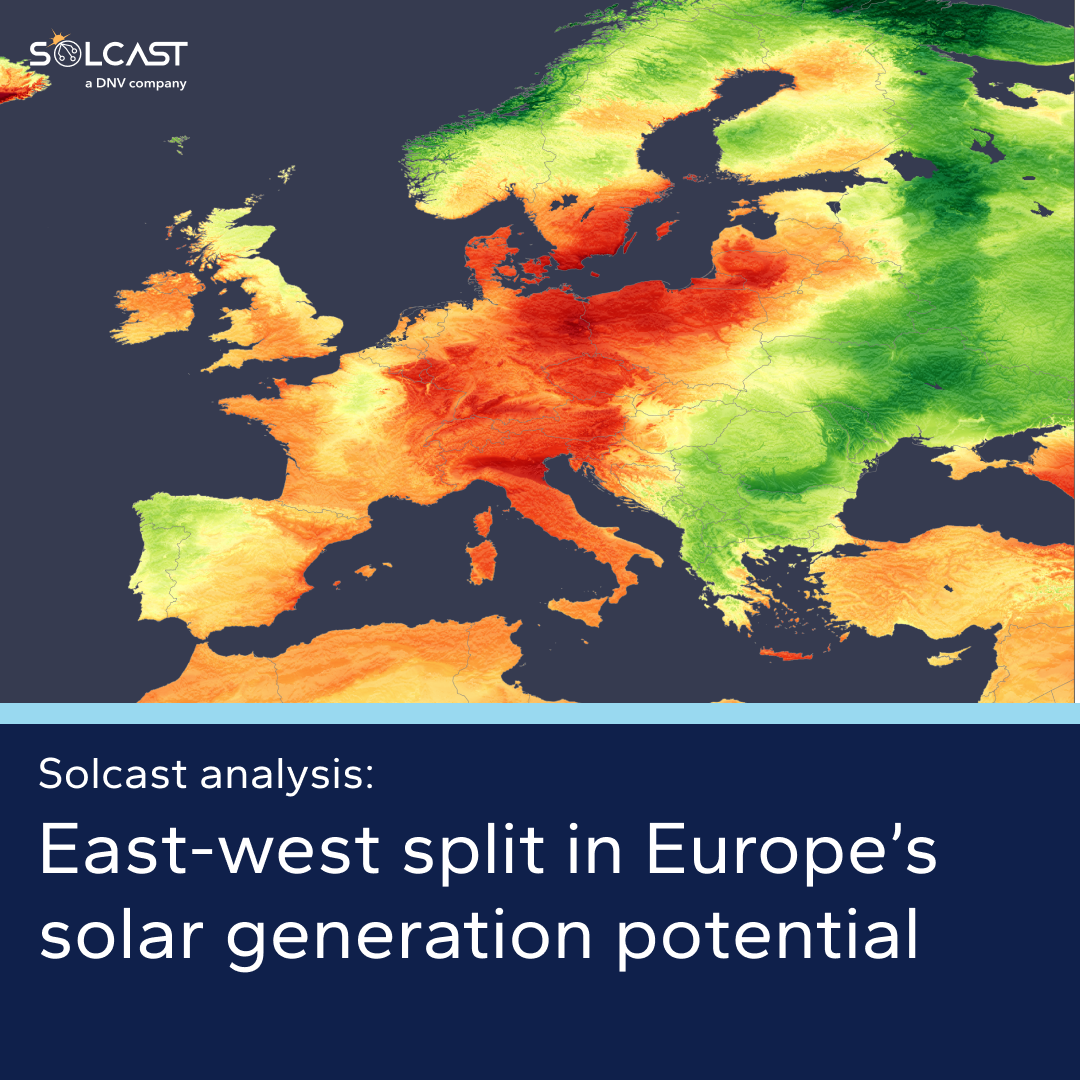
Solar Analysis
Tracks of low-pressure systems split Europe’s solar performance in November
Solar generation potential across Europe showed a clear east-west divide in November, driven by persistent low-pressure systems affecting eastern regions.
Solar Analysis







